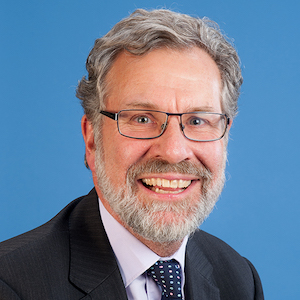-
Completely agree Material effects have been enormous. General bad news about people, conflict, and erosion of world order are fundamental threats to trust in others, a strong support of SWB.
Professor Chris Barrington-Leigh
Professor, McGill University -
Completely agree We still do not have data on the evolution of wellbeing in European countries after the beginning of the Ukraine/Russia conflict. However, wars are a major source of insecurity and wellbeing studies point to a substantial negative impact of insecurity on wellbeing. Sources of personal insecurity and instability in people’s lives, such as job loss and precariousness or divorce, heavily hamper their wellbeing. Collective insecurity has a similar effect, as suggested by medical studies showing that individuals with hypertension show a significant increase in blood pressure and viscosity lasting 4-6 months, after experiencing an earthquake. The experience of Covid-19, with its enormous burden of uncertainty and its huge destructive effect on the mental health of large portions of the population is evidence of the negative impact of collective insecurity on wellbeing. Furthermore, inflation (resulting from the increase in energy prices) negatively impacts well-being, as shown by various studies. All in all, it is reasonable to expect substantial losses of wellbeing in countries not directly involved in the conflict and that these losses will be stronger in the countries geographically closer to the war.
Professor Stefano Bartolini
Professor of Economics, University of Sienna -
Completely agree Massively and through many channels
Professor Martin Binder
Professor of Socio-Economics at Bundeswehr University Munich -
Neither agree nor disagree This is difficult to gauge. With COVID impacts persisting, inflation pressures, among others, it is difficult to tease out the cause of any change in wellbeing. Also depends upon where one lives on this planet. Europe certainly appears to have issues with gas supply, a problem not experienced in Asia, although Asia is feeling the upward trend in international gas prices; but many suppliers like Australia are guaranteeing domestic supply. When the 2022/23 wellbeing survey data is available, we may have a clearer picture of the impact of the Ukraine/Russia conflict. With a gdp a little over 15% higher than Australia, one wonders how Russia can fund such a war? I expect a collapse of the Russian economy in the future, if not a major cut in the provision of social services to the Russian population over the coming decades; the Russian people are about to go through a miserable period.
Doctor Tony Beatton
Visiting Fellow, Queensland University of Technology (QUT) -
Neither agree nor disagree It depends on whether life circumstances in a country have been significantly adversely affected.
Professor Richard Easterlin
Professor of Economics, University of Southern California -
Agree The wellbeing in western countries has been steadily deteriorated over the last years (including mental health deterioration). The Ukraine world has negatively impact wellbeing both directly and indirectly through the negative economic effects. Nevertheless, social, economic, and cultural tensions have been evolved over a longer time. The russian invansion in Ukraine or the Covid19 global crisis are only two examples of the global crisis.
Professor Ada Ferrer-i-Carbonell
Professor of Economics, IAE-CSIC -
Agree The deterioration in wellbeing that people in countries other than Russia and Ukraine have experienced as a result of the conflict has arisen from various sources, including most importantly economic stress resulting from trade disruptions, and anxiety resulting from news reports about the threat that the conflict will spill over into their lives, e.g., via clear escalation. Those in European countries most proximate to the conflict will likely have been most affected.
Professor Gigi Foster
Professor, School of Economics, UNSW School of Economics -
Agree The big effects on countries close by has been millions of distressed Ukrainian refugees, putting pressure on local resources and thus creating additional hardship and resentment. The wider implications of the conflict have come from greater pressure on international gas prices, food prices, and reduced availability of fertilisers in agriculture. That all translates into a significant increase in poverty which is bad for wellbeing. Longer-term the conflict is now leading to a more open Big Power confrontation internationally, with huge consequences that are hard to call.
Professor Paul Frijters
Professorial Research Fellow, CEP Wellbeing Programme, London School of Economics -
Agree "Veenhoven (2017) argued that happiness must have improved by more than two points [on an 11 point scale] over the past two centuries as a result of the enlightenment. Unfortunately, not all countries or all leaders (including those in Russia) have accepted the insights of the enlightenment. Consequently, we are seeing horrific abuses perpetrated in the name of what is good for a nation, rather than what is good for people. The wellbeing of most people who live their life in the spirit of the enlightenment will have deteriorated as a result of the current conflict. However, there will also be some (many?) who adhere to pre-enlightenment modes of thought and who are not concerned about the conflict or whose wellbeing may even be lifted at the thought that a nation is acting to assert its power. Reference: Veenhoven R. 2017. Greater happiness for a greater number: Did the promise of the enlightenment come true? Social Indicators Research, 130, 9-25. "
Professor Arthur Grimes
Chair of Wellbeing and Public Policy, School of Government, Victoria University of Wellington -
Completely agree The most obvious reason is the effect on prices, particularly of fuel; A second effect is on the fear of further escalation.
Professor Arie Kapteyn
Professor of Economics, University of Southern California -
Completely agree The Ukraine/Russia conflict has deteriorated the wellbeing of people of other countries because they receive a dramatic shock to their security, to the extent that they live close to the conflict, and because they experience higher inflation and consequent economic problems, even if only indirectly induced by the conflict. Furthermore, the protraction of the war can cause, in populations not directly involved, a desensitization to violence, which, through social interaction, leads to malaise.
Professor Maurizio Pugno
Full Professor of Economics, University of Cassino -
Neither agree nor disagree This is a broad statement; it is not clear which countries not directly involved we are referring to. Furthermore, the impact of the Ukraine/Russia conflict may depend not only on country of residence but on some personal-level factors such as age, economic activity, and so on. Thus, I think we need greater specificity in order to elaborate on the wellbeing consequences of the conflict.
Professor Mariano Rojas
Professor of Economics, Universidad Popular Autónoma del Estado de Puebla -
Agree "The war in the Ukraine has clearly impacted on wellbeing elsewhere in the world via its impact on food prices and energy prices. High prices in these areas result in a reduction of real incomes and there is extensive evidence that low incomes is correlated with low wellbeing (e.g. Deaton and Kahneman, 2010). More importantly, a fall in income from a higher level is likely to have a disproportionately negative impact on wellbeing compared to the impact of simply living at a particular level of income (de Neve et al, 2018; Arampatzi, Burger, Ianchovichina, Rohricht and Veenhoven, 2018). "
Doctor Conal Smith
Principal, Kōtātā Insight -
Completely agree "Do you agree with the statement:¨ The wellbeing of people in countries not directly involved in the Ukraine/Russia conflict has deteriorated as a result of that conflict. I completely agree. As noted by Pereira et al. (2022), The Russian-Ukrainian armed conflict is a dramatic world event†(p. 277). The negative consequences of the conflict will affect both countries directly and not directly involved (Ozili et al., 2022; Rawtani et al., 2022). For example, we are facing tremendous negative impacts on the environment (e.g. energy, foods supply, biodiversity, water), the economy (e.g. GDP, inflation), individual well-being (e.g., life insecurity, mental health problems, fear of death) and the society as a whole (e.g., terrorism). Moreover, specially for developing and more vulnerable countries, “this conflict is imposing severe threats to achieving the United Nations (UN) Sustainable Development Goals (SDGs)†(Pereira et al., 2022, p. 277). References Pereira, P., Zhao, W., Symochko, L., Inacio, M., Bogunovic, I., & Barcelo, D. (2022). The Russian-Ukrainian armed conflict impact will push back the sustainable development goals. Geography and Sustainability. https://doi.org/10.1016/j.geosus.2022.09.003 Ozili, P. K. (2022). Global economic consequence of Russian invasion of Ukraine. Available at SSRN: https://ssrn.com/abstract=4064770 or http://dx.doi.org/10.2139/ssrn.4064770 Rawtani, D., Gupta, G., Khatri, N., Rao, P. K., & Hussain, C. M. (2022). Environmental damages due to war in Ukraine: A perspective. Science of The Total Environment, 850, 157932. https://doi.org/10.1016/j.scitotenv.2022.157932 "
Professor Wenceslao Unanue
Associate Professor, Business School, Universidad Adolfo Ibáñez -
Disagree Earlier research after the Cuba crisis in 1962 did not show an effect on the happiness of Americans, even though these were aware of the danger of an atomic war
Professor Ruut Veenhoven
Professor of Sociology, Erasmus University Rotterdam -
Agree "It is well known that disasters affect the wellbeing of people not directly affected,. For example, Kimball et al. (2006) found that after Hurricane Katrina wellbeing dropped in US regions not directly affected and that the welbeing of US citizens dropped after a strong earthquake in Pakistan. On the other hand, Coupe and Obrizan (2016) found that the wellbeing of Ukrainians living in regions not directly affected by the war in the east of Ukraine was not much affected. Given the much larger scale of the present war and the threat it may pose to peace in Europe more generally (in addition to the economic consequences) , I think that the wellbeing of European citizens deteriorated considerably. References: Kimball, Miles S. and Levy, Helen and Ohtake, Fumio and Tsutsui, Yoshiro, Unhappiness after Hurricane Katrina (March 2006). NBER Working Paper No. w12062, Available at SSRN: https://ssrn.com/abstract=888264. Tom Coupe, Maksym Obrizan(2016), The Impact of War on Happiness: The Case of Ukraine, Journal of Economic Behavior and Organization 132, 228-242. "
Professor Heinz Welsch
Professor of Economics, University of Oldenburg

The wellbeing of people in countries not directly involved in the Ukraine/Russia conflict has deteriorated as a result of that conflict
I do not expect my country to regain the level of average wellbeing it had in 2019 in the next 20 years.
-
Disagree "Opportunities are enormous when a group faces a common threat. Sense of purpose and sense of community are powerful supports of SWB. If we get on the right side of some of our challenges, we will feel united in purpose. It's also important to realize how many things can be expected to be vastly better, if we look more than a few decades ahead. Transcending the energy transition to clean distributed power, and transcending the population peak, mean that a beautiful, clean, prosperous world await -- albeit with a few fewer species. That said, I expect and have for a decade that this will be a century of ongoing conflict as well as a heady level of loss. However, the stories we tell about the future have a self-fulfilling element, since people are more likely to come together with creative and pro-social solutions when they see have a positive story of the future, and when they belong to something meaningful that links past and future. Therefore, the actual outcome in a region or country of the world is still highly unpredictable -- up to leadership and the vagaries of future surprises."
Professor Chris Barrington-Leigh
Professor, McGill University -
Neither agree nor disagree "We may have entered a period of frequent global emergencies that heavily hamper wellbeing ( 5 in the past 20 years: 9/11, the 2008 financial crisis, global warming, Covid-19, Russia-Ukraine war). Their future frequency and severity (and therefore their impact on well-being) depends on our ability to remove or mitigate the causes of such crises. To what extent we will be able to do this is currently impossible to say. "
Professor Stefano Bartolini
Professor of Economics, University of Sienna -
Agree Predictions 20 years into the future fraught with uncertainty but the optimist in me hopes that we will have adapted to the new realities by then. Whatever else happens in the next 20 years, who knows...
Professor Martin Binder
Professor of Socio-Economics at Bundeswehr University Munich -
Disagree Depends upon the country. Perhaps other than China, because of its zero COVID policy which has closed industry, Asia appears to be immune from the madness of Europe; other than a small downward shift in real estate prices we are yet to feel the impact from inflation. The wellbeing of all Australians has steadily increased between 2017 and 2020 from 7.92 to 7.997; it is higher for females 7.945 to 8.00, as well as males 7.892 to 7.986. This in a period where we have had major climate change effects with the largest bushfires ever recorded (2019/2020) then years of floods (2020/2021/2022). Will be interesting to see the wellbeing numbers in the next wave (2021) of the HILDA socio-economic panel data. But, then there are Putin's Nukes!
Doctor Tony Beatton
Visiting Fellow, Queensland University of Technology (QUT) -
Disagree Twenty years is a long time. Who can say with confidence what will happen?
Professor Richard Easterlin
Professor of Economics, University of Southern California -
Neither agree nor disagree The social and economic polarization, together with the environmental crisis and geopolitical tensions, are bound to last for more than 20 years. Nevertheless, it is hard to make such long term predictions. If however I had to bet, I would expect my country entering a long term social and economic crisis.
Professor Ada Ferrer-i-Carbonell
Professor of Economics, IAE-CSIC -
Agree I would like to say that 20 years will be enough, if we acquired the vision and political will over the next couple of years to build towards this, but i am doubtful that will happen and even more doubtful that it would be capable of returning us to 2019 levels of wellbeing. Even with the best possible political re-orientations to repair the damage to adult wellbeing done during covid, the children who suffered through the covid era will still be around in 20 years, enjoying worse outcomes because of all the debt we accumulated and all the services we deprived them of during covid - so their wellbeing levels will likely not fully recover.
Professor Gigi Foster
Professor, School of Economics, UNSW School of Economics -
Agree My country, the Netherlands, now has a locked-in generation of children with reduced schooling and emotional intelligence due to the forced school closures of the last 30 months, which will reduce wellbeing for a generation. Also, the impoverishment and social strife that has come with the lockdowns (vaccine apartheid, business closures, increased autocracy, reduced voice of citizens) is leading to a long-run increase in poverty and reduced quality of social relations. Apart from the long-run shadow of the lockdown period (which has reduced life satisfaction in 2022 by at least 5% relative to 2019), the general trend before 2019 was already an increase in social strife due to the simmering conflict between globalism and nationalism, a conflict I expect to worsen the coming years. Social media has also on balance become a bad long-term trend, probably responsible for loss of critical skills and ability to focus. Even though one should expect some upturn in the next 20 years, the high point reached in 2019 seems hard to replicate.
Professor Paul Frijters
Professorial Research Fellow, CEP Wellbeing Programme, London School of Economics -
Neither agree nor disagree There are so many factors that influence individuals' wellbeing that it is impossible to predict the long-term future path of wellbeing for citizens of a country.
Professor Arthur Grimes
Chair of Wellbeing and Public Policy, School of Government, Victoria University of Wellington -
Completely disagree People adapt and 20 years is a long time
Professor Arie Kapteyn
Professor of Economics, University of Southern California -
Completely agree Well-being in Italy has already begun its long-run decline: in 2021 the share of Italians who declare that they are "very" or "fairly" satisfied with their lives is 11% lower than the 2002 peak, while the economic growth trend is around zero. Italy has joined the case of the US, in which happiness is declining since early 1970s, and in 2021 the share of Americans declaring themselves very happy is 12% lower than in 2019 despite the recent recovery. My guess for the next 20 years is that wellbeing in Italy and the US will not improve because the reasons for the wellbeing decline of the past are structural, and now further aggravated by the war in Ukraine. As I discussed in my book "Well-being and Growth in Advanced Economies: the Need to Prioritise Human Development" (2022, Routledge), the structural reasons arise from priority given to markets and large companies in order to solve (unsuccessfully) the problem of the slowdown in the economic growth. The result is that recessions, inequalities, environmental deterioration, and then pandemics have caused social divides, weak governments, and people unable to build their own future, and then unsatisfied with themselves.
Professor Maurizio Pugno
Full Professor of Economics, University of Cassino -
Neither agree nor disagree Prospective analyses do require addressing major social, demographic, economic, and technological trends. There may be reasons to be pesimistic about future wellbeing; just to mention some trends: very low fertility rates in many countries, climate change, and global warming, hunger-induced migration, economic stagnation, deterioration of family values, potential geopolitical crashes, and so on) However, there is also greater awareness about these problems and there is raising interest to change our development paradigm.
Professor Mariano Rojas
Professor of Economics, Universidad Popular Autónoma del Estado de Puebla -
Completely disagree Official measures of life satisfaction for New Zealand show a mean value (0-10) of 7.7 in 2018. This increased to 7.9 in 2020 before falling back to 7.7 in 2021. Data from the Gallup World Poll shows New Zealand with a ladder of life score of 7.2 in 2019 rising to 7.3 in 2020 and then falling to 7.1 in 2021. Put simply, New Zealand shows a fairly consistent picture of the Covid-19 inducing a positive wellbeing blip - likely due to a sense of social solidarity and possibly more time with family - followed by a return to long term trends afterwards.
Doctor Conal Smith
Principal, Kōtātā Insight -
Completely disagree "I disagree completely. I am from Chile. My country is facing a strong and deep process of change. For example, most people have agreed that Chile need a multiplicity of economic, environmental and social changes. Just an example, we will replace the current constitution (which was written during the dictatorship period of Pinochet), for a new one. I hope this new one will include social rights (e.g. health, education, pensions), environmental protection, more autonomy and less inequalities for women, etc. I am pretty sure that if we make the necessary changes, our individual and societal well-being will be much higher than in 2019 where we have the so-called "estallido social" (massive protests along the whole country) asking social justice (see Pons et al., 2020 "Unrest in Chile"). References Pons, V., Mullins, W., Masko, J., Lobb, A., Di Tella, R. (2022). Unrest in Chile. https://store.hbr.org/product/unrest-in-chile/720033 "
Professor Wenceslao Unanue
Associate Professor, Business School, Universidad Adolfo Ibáñez -
Completely disagree Average happiness has risen in Western nations over the past 50 years, in spite of economic recessions and similar political threads. Happiness depends on many more things than thread of war and we can apparently live with some thread. The human species did not evolve in Paradise.
Professor Ruut Veenhoven
Professor of Sociology, Erasmus University Rotterdam -
Disagree "The war in Ukraine may become a frozen conflict, but will not continue at the present scale for several years. Even if violent conflict continues, happiness adaptation to it was found even in countries directly affected (Welsch 2008). This is likely to apply a fortiori to countries not directly affected. Reference: Welsch, H. The social costs of civil conflict: evidence from surveys of happiness. 2008 Kyklos. 61 320-340 "
Professor Heinz Welsch
Professor of Economics, University of Oldenburg
Our panelists’ responses to the two questions revealed a dichotomy between their views on developments in short-term wellbeing versus long-term wellbeing. A majority indicated that wellbeing has declined as a result of the Ukraine/Russia conflict but a majority did not expect the current deterioration in wellbeing to extend across a 20 year period. While the sub-samples are small, responses to the second question indicated a potential divide between those within and outside Europe; those within Europe tend to show more pessimism about long-term wellbeing than those outside.
For the first statement, 12 of our 16 respondents completely agreed (6) or agreed (6) with the statement, 3 were neutral and only one disagreed (no-one completely disagreed). The strongest arguments for agreement included:
- There has been an erosion in the world order with fundamental threats to trust in others and there are risks of further escalation in the conflict (Chris Barrington-Leigh, Arie Kapteyn, Paul Frijters; Gigi Foster). Arthur Grimes, who shared these views, noted that current threats to enlightenment values negatively impact on many people’s wellbeing; however, those who do not share in the values of the enlightenment may react positively to the thought that a nation is acting to assert its power. Mariano Rojas and Tony Beatton also noted that wellbeing of people in different circumstances and in different locations may respond quite differently; hence it is difficult to generalise about the effects.
- Stefano Bartolini considered that wars are a major source of insecurity, and wellbeing studies point to a substantial negative impact of insecurity on wellbeing. Sources of personal insecurity and instability in people’s lives, such as job loss and precariousness or divorce, hamper their wellbeing. Collective insecurity has a similar effect, as suggested by medical studies showing that individuals with hypertension show a significant increase in blood pressure and viscosity lasting 4-6 months, after experiencing an earthquake. The Covid experience, with its enormous burden of uncertainty and its huge destructive effect on the mental health of large portions of the population is evidence of the negative impact of collective insecurity on wellbeing.
- The conflict has caused reductions in material wellbeing, in part through price increases, especially in fuel prices, so reducing overall wellbeing (Arie Kapteyn; Chris Barrington-Leigh, Paul Frijters, Gigi Foster). Conal Smith elaborated on this point noting that reductions in real incomes have a disproportionately negative impact on wellbeing compared to simply living at a particular level of income (e.g. de Neve et al, 2018).
- Some countries are witnessing a large influx of refugees as a result of the conflict, placing pressure on local resources and creating additional hardship and resentment (Paul Frijters).
- Maurizio Pugno argued for a potential side effect of a protracted war which “can cause, in populations not directly involved, a desensitization to violence, which, through social interaction, leads to malaise".
- Ada Ferrer-i-Carbonell discussed another type of protracted effect: The war in Ukraine follows a series of social, economic, and cultural tensions, including the Covid pandemic, and these cumulative effects have resulted in a steady deterioration of wellbeing.
- Wenceslao Unanue argued that the war is having negative impacts on the environment, the economy, individual well-being (including life insecurity, mental health problems, fear of death) and society as a whole. Moreover, the conflict is imposing severe threats to achieving the United Nations (UN) Sustainable Development Goals (Pereira et al., 2022).
- Heinz Welsch cited the research of Kimball et al. (2006) who found that after Hurricane Katrina, wellbeing fell in US regions that were not directly affected. On the other hand, Coupe and Obrizan (2016) found little effect on the wellbeing of Ukrainians living in regions not directly affected by the (initial) war in the east of Ukraine. He considered, however, that the much larger scale of the present war and the threat it poses to peace in Europe (plus the economic consequences) is resulting in considerable deterioration in the wellbeing of European citizens.
The only person to disagree with the statement, Ruut Veenhoven, referred to a different historical example. Consistent with the Coupe and Obrizan results, he noted that research after the Cuban missile crisis in 1962 did not show an effect on the happiness of Americans, even for those who were aware of the danger of an atomic war.
For the second statement, 8 panelists either completely disagreed (4) or disagreed (4), while 4 agreed (3) or completely agreed (1); the remaining 4 were neutral.
Those in the majority (i.e. those who disagreed with the statement that wellbeing would not return to 2019 levels within the next 20 years) made a number of supporting observations:
- Tony Beatton argued that the proposition depended on which country was being considered. He reported that subjective wellbeing in Australia was higher in 2020 than in 2017, while in other countries (e.g. China with its zero-Covid policy) experiences may be quite different.
- Similarly, in New Zealand, Conal Smith produced data showing both that official measures and Gallup World Poll measures of life satisfaction indicate a consistent picture of the Covid pandemic inducing a positive wellbeing blip followed by a return to long term trends afterwards (for further evidence, see Grimes, 2022).
- In Chile, Wenceslao Unanue considered that moves towards greater social rights (e.g. health, education, pensions), environmental protection, and more autonomy and less inequality for women, will lead to improved wellbeing relative to the situation in 2019 – a year which saw massive civil unrest.
- Heinz Welsch (referring to research reported in Welsch, 2008) considered that the war in Ukraine will not continue at the present scale for several years, but if it does continue, happiness adaptation is likely to occur both in countries directly affected and in other countries. Arie Kapteyn similarly considered adaptation to be likely.
- Pointing to long term trends, Ruut Veenhoven noted that average happiness has risen in Western nations over the past 50 years in spite of economic recessions and other challenges: “The human species did not evolve in Paradise”!
- Other panelists (Richard Easterlin, Arthur Grimes, Stefano Bartolini, Ada Ferrer-i-Carbonell, Martin Binder, Chris Barrington-Leigh) noted that much can happen to influence wellbeing over a long period such as 20 years. Like Ruut Veenhoven and Wenceslao Unanue, Chris Barrington-Leigh pointed to potential positive influences on wellbeing in future: “It's also important to realize how many things can be expected to be vastly better, if we look more than a few decades ahead. Transcending the energy transition to clean distributed power, and transcending the population peak, mean that a beautiful, clean, prosperous world await -- albeit with a few fewer species.” Mariano Rojas pointed to similar challenging issues, but considered their presence could lead to either pessimism or optimism depending on our awareness of the challenges and how they are tackled.
Two of those who agreed with the statement pointed to the after-effects of Covid (and the policy reactions to Covid) as having long-term consequences. With reference to Australia, Gigi Foster considered that “the children who suffered through the Covid era will still be around in 20 years, enjoying worse outcomes because of all the debt we accumulated and all the services we deprived them of during Covid - so their wellbeing levels will likely not fully recover.” For the Netherlands, Paul Frijters argued that the country “has a locked-in generation of children with reduced schooling and emotional intelligence due to the forced school closures of the last 30 months, which will reduce wellbeing for a generation. Also, the impoverishment and social strife that has come with the lockdowns (vaccine apartheid, business closures, increased autocracy, reduced voice of citizens) is leading to a long-run increase in poverty and reduced quality of social relations.”
Meanwhile, Maurizio Pugno and Paul Frijters each pointed to longer term trends to argue that wellbeing is on a declining path. Paul Fijters expected “the simmering conflict between globalism and nationalism” to worsen over coming years while the negative effects of social media would continue to contribute to loss of critical skills and ability to focus. Reflecting his recent book (Pugno, 2022), Maurizio Pugno argued that wellbeing has been declining in both Italy and the United States for structural reasons that arise from priority given to markets and large companies to solve (unsuccessfully) the problem of slowing economic growth. He argues “the result is that recessions, inequalities, environmental deterioration, and then pandemics have caused social divides, weak governments, and people unable to build their own future.”
As noted at the outset, the responses from outside of Europe to the second statement were, on balance, more optimistic about long-term trends than those from within Europe. This raises an interesting question – that we cannot answer here – of whether Europe faces special long-term challenges to wellbeing.
References
- Coupe T, Obrizan M. 2016. The Impact of War on Happiness: The Case of Ukraine, Journal of Economic Behavior and Organization, 132, 228-242.
- De Neve J-E, Ward G, De Keulenaer F, Van Landeghem B, Kavetsos G, Norton M. 2018. The asymmetric experience of positive and negative economic growth: global evidence using subjective wellbeing data. Review of Economics and Statistics 100, 362-375.
- Grimes A. 2022. Measuring pandemic and lockdown impacts on wellbeing. Review of Income and Wealth, 68, 409-427.
- Kimball M, Levy H, Ohtake F, Tsutsui Y. 2006. Unhappiness after Hurricane Katrina. NBER Working Paper No. w12062.
- Pereira P, Zhao W, Symochko L, Inacio M, Bogunovic I, Barcelo D. 2022. The Russian-Ukrainian armed conflict impact will push back the sustainable development goals. Geography and Sustainability.
- Pugno M. 2022. Well-being and Growth in Advanced Economies: The Need to Prioritise Human Development. Routledge.
- Welsch H. 2008. The social costs of civil conflict: evidence from surveys of happiness. Kyklos, 61, 320-340.
